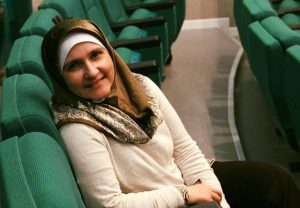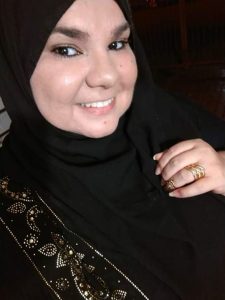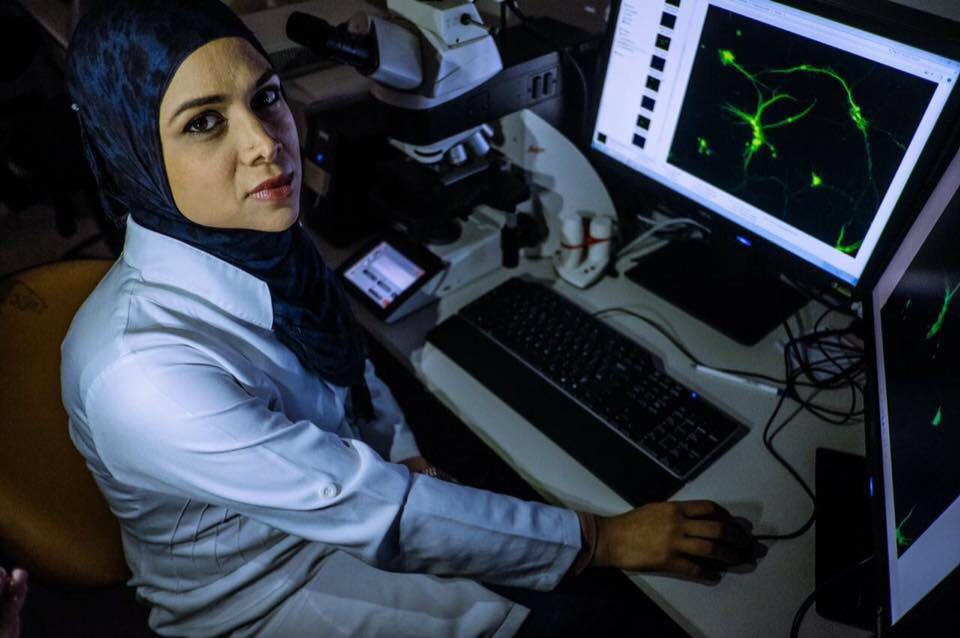São Paulo – They study engineering, law, anthropology, math, neuroscience and occupy jobs in Brazil wearing hijabs covering their hair. They are Muslim women living in Brazil and, with the way they live, put themselves in the job market, and view religion, they help building a contemporary image of the Islam followers. Just as the knowledge set the foundation for their careers, so it is a fuel and a reasoning for their faith.
From Minas Gerais, Letícia Gouvêa, an electrical engineer converted to Islam, is part of this group. Letícia worked for three years in an energy company and even climbed rooftops wearing the Islamic veil and long clothes. Three years after the conversion, she resigned, as she wanted more from her career. “I noticed men made 40% more money than women and I didn’t go back to the formal labor market,” she says.
The path Letícia chose was the study. She went to Turkey to learn more about Islam and then to Syria to study Arabic at the University of Damascus. Back in Brazil, in São Paulo, where she lived, the engineer built a diversified career path. She is an English translator, makes and sell embroideries, provides administrative services to a non-governmental organization, and became a beekeeping entrepreneur. She is also majoring in social sciences.

Her work with honey started by chance. Some bees had built a hive on the roof of the house she bought at the Mantiqueira Mountains and, after getting tired of paying beekeepers to go there, Letícia decided to study apiculture. Now, she owns 27 boxes for honey production spread over her estate and some leased places. She knows all about honey processing, sells the product and plans to create a brand in the area. While taking care of the bees and selling the embroideries she frames and sells as art, she wears the hijab.
The biologist Soha Mohamad Chabrawi (pictured on the top) also works wearing a veil as well as long clothes. An assistant at the area of Halal Quality Control at the Federation of Muslim Associations (FAMBRAS) in São Paulo, she has studied for a long time since started her career, which included finishing high school abroad and researching neuroscience on her doctoral studies. Daughter, Soha was inspired by her mother in her professional choices. “My grandmother only allowed my mother to get married only after she had a profession,” she tells.
The biologist has three sisters and they all had the opportunity to study abroad in their teenage years. Soha went to the United States. She chose Biology because she wanted to work with research. And that’s what she did. During her master’s degree, she studied the neurological action of the psychoactive drug in the animal brain. In her doctoral studies, the theme was the connections in the region responsible for the mammal movement. “I’ve always liked neuroscience, studying the brain,” she says. At FRAMBRAS Halal, Soha arrived without knowing much about the area and studied a lot to be part of the team that oversees ISO 17.065.
In Guaíra, São Paulo, Fatima Adel Khatib teaches math in a school, while planning to open an engineering company and doing a post-graduation course in the area. From a Lebanese Muslim family, Fatima first graduated in Math and two years ago concluded Civil Engineering. She studied her last course wearing a veil over their hair. “I never had any problems with that,” she tells. Her plan to start an engineering company is being developed with a partner. The idea is to balance the company and the classes and not giving up the hijab, even if the work is in construction sites.
Silvia Ferreira is also one of Brazilian hijab-wearers Muslim women that stand out in their careers. She doesn’t work directly in the area she studied but leads a major online store of Arab fashion in Brazil, Silvia Arabic Fashion. Converted to Islam nine years ago, Silvia studied Law and is a graduate in International Law. Two years ago, a year after getting married to an Egyptian and moving to an Arab country, she started the online store. Ninety-five per cent of the pieces she sells are from Egypt and 5% from Turkey. She is got a stock in Brazil and travels to the country at least six times a year. When a customs clearance is needed, Silvia is the one that solves it. The store supplies clothes to Brazilian TV shows.
Silvia says that, although she doesn’t work with Law, studying the subject helped her create a very professional business. “I have marketing strategies, strategic planning, a growth plan,” she reports. The store has 80,000 followers on Facebook and the social media points it as Latin America’s largest Arab clothes store. “I like fashion, have always consumed fashion and beauty products,” she says about her business. Silvia intends to open a physical store in Brazil in the future, but also want to keep studying. She is trying to enter the master’s program in Human Rights from an Islamic perspective in Egypt. “I think it is important to have a backup plan in life. I have no problem continuing my studies,” she says.
As professors
At the the University of São Paulo in Ribeirão Preto, another Brazilian with a long resumé teaches with her hair covered. Her name is Francirosy Campos Barbosa, an icon for the Muslim women around her. Francirosy is converted, has started using the headscarf recently and represents some of what this new veiled women generation aims with their careers and voices. She is a full professor at the Psychology Department at USP in Ribeirão Preto. The focus of her research is the Islam.

Graduate at social sciences with a master and a doctorate in Anthropology and a post-doctorate in Islamic Theology from the University of Oxford, Francirosy coordinates the group Gracias of Islamic and Arab studies, leads a group of intellectual Muslim women called Maryam, and has organized the book “Olhares femininos sobre o Islã: etnografias, metodologia e imagens” (Female perspectives on Islam: Ethnographies, methodology and images”) and other activities associated to the academy and the Muslim religion.
Very close to the Muslim female universe, Francirosy says that now, among Muslim women born in Brazil or reverted, housewives are the exception, most work outside their home. But she says that, just like other women, there are some Muslim women that are happy to stay home and take care of the house and children, some that prefer working outside the house, and some who are unhappy in this or that situation. However, there is some discrimination against veiled Muslims at the labor market, according to her. “There is a prejudice against the veil,” she says. Out of the 32 Muslims women that are part of the Maryam group, 19 use hijabs.
Some of the women ANBA interviewed for this story reported perceiving prejudice while searching for jobs, but none has stopped using the scarf because of that. Soha believes the hijab was the reason she was not hired in an institution after being approved through the whole recruitment process. “They asked me if I would take it off,” she says about that final interview. Despite being from a Muslim family, Soha only started using the veil when she felt ready, ten years ago. Even tough she notices some effect in job interviews, she doesn’t regret her choice.
A hijab over her hair
Converted six years ago, Francirosy started using the hijab last March, after the attack against the New Zealand mosque. She felt not using the veil was too comfortable. People not always knew she was a Muslim. First, she used a scarf with her hair visible, but then she chose a more severe model. “A piece of my religion was missing, I didn’t feel like a total Muslim,” she says about her time before the hijab.

Fatima: used the scarf for a while, paused, and then started using it again. She says she uses because of her faith, because it is written in the Quran, and she knows that while using it she does not represent only herself but her whole religion. “It is my identity, just like people are free to use a short skirt, I’m free to use my veil. It shows who I am,” she says. She also believes the veil makes people know each other for their ideas and opinions, and not for their bodies.
Letícia uses a hijab since she converted and says she became more tolerant after she started using the Islamic piece because of the challenge it poses. “When I started using it, it was hard because I’m very sensitive to heat, when I was a child I didn’t even like using a ribbon on my hair,” she says. The outfit also serves to keep herself from entering places she does not view as positive or responding to offenses on the street with bad words. “Using the veil, I’m not just Letícia,” she says.
For Silvia, adopting hijab was a slow process. She reverted around nine years ago. First, she used pants and a long dress, then she started using long sleeves. Four years ago, after finishing a course on Islam at the University of Al-Azhar in Egypt, she started using the whole outfit, completed with the veil over her hair. She felt ready. “It is a whole stereotype you carry,” she says, telling she started being seen as a foreigner in Brazil. In Egypt, they’d already identified her as a foreigner, she reports.
Study comes first
The converts to Islam interviewed by ANBA chose their religion after learning more about the religion. This was truth for Letícia. Noticing it was not studied at schools, she decided studying the Islam. “I thought it was very clever how the Muslims spread Islam around the world, taking knowledge and progress wherever they went,” she says. This drove her to look forthe Quran, which captivated her for good. Silvia Ferreira was going through a rough time in her life when she received an internet link to listen to passages from the Quran. “I started listening, researching, studying, reading,” she says.
They keep searching for knowledge in the religion. Besides the content offered at the mosques, they seek information and Islamic education offered face-to-face and online in Brazil and abroad. “We only skim the surface with what we learn in Brazil,” says Francirosy. The anthropologist seems very enthusiastic with the new generation of young Muslim women, which seek more knowledge about the world in general and their religion, and she believes they will occupy better positions in the society. “You have to keep your head down to God, not to men, and this is not feminism, it is Islam,” she says.
Translated by Guilherme Miranda




